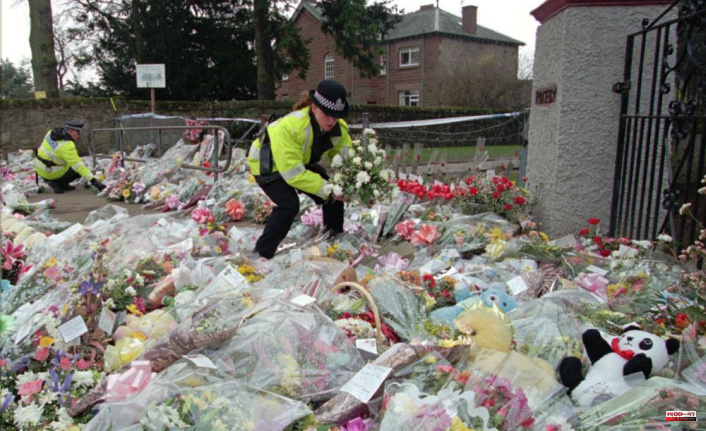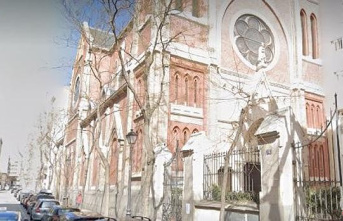Mick North was devastated when his 5-year-old daughter, Mick North, was shot to death at school. He vowed that it would never happen again.
It hasn't happened in Britain. After the Dunblane massacre in 1996 that killed 16 children in a Scottish elementary school, there was a ban on handgun ownership in the U.K. Despite the fact that gun violence is rampant in Britain, there have not been any school shootings over the past quarter century.
A gunman aged 18 killed 19 students and 2 teachers in Uvalde Texas, Texas. This is due to the deep-rooted gun culture in the United States.
North, who was a key figure in the creation of Britain's Gun Control Network following the death of his daughter Sophie, stated that his reaction was shock, but not surprising. He also knows the pain and struggles of the Uvalde family, but he said "my sympathy isn't going to make them feel any better." It's horrible. It is just awful."
North's life was ended on March 13, 1996 when Thomas Hamilton, 43, entered Dunblane Primary School, central Scotland, and formed a class of 6 and 5 year-olds. Former Scout leader, 43, killed 16 children and shot himself with four handguns. Two teachers and 12 more children were also wounded.
The public outrage at the massacre and campaigning by grieving families that put pressure upon politicians led to rapid changes in Britain's gun laws.
A small group of mothers in the area started the "Snowdrop Campaign" shortly after the carnage. It was named after the snowdrop, which is the only flower that was in bloom at the time of spring. They also began a petition calling for a ban on private handgun ownership.
The movement gained momentum quickly across the country and campaigners ultimately took boxes filled with paper signed by 750,000 people to London politicians.
Rosemary Hunter, one the campaign's founders, stated that "I believe our strength was in number." Her 3-year old daughter was at Dunblane nursery when the shooting took place. Hunter stated that "the mood was so overwhelming in support of the changes that it wasn't difficult to overcome" the opposition from gun supporters.
Hunter expressed concern about the United States, saying that he didn't know how to translate it into a country with more guns than people. It's overwhelming in many ways to think of people going through the same things we did here in our small town. It's happened many times before.
Dunblane, like Uvalde is a small community where many of its 9,000 inhabitants know each other. The pain of 1996 was still felt by many who lived there, including Andy Murray, a nine-year-old student at Dunblane Primary School. Murray responded to the Texas shooting by tweeting that it was "madness."
With the support of both Labour and Conservative politicians, Parliament passed new laws in the year following the shooting to ban private ownership of nearly all handguns in Britain. Under a government buyback program, gun owners surrendered over 160,000 guns.
After a shooting rampage that killed 16 people in Hungerford, England in 1987, Britain had already banned semiautomatic guns a decade before. With a license, shotguns or rifles can still be owned by individuals.
Other countries have responded to mass shootings with tougher laws. After the 1989 murder of 14 students at L'Ecole Polytechnique in Montreal by a misogynist, Canada tightened its gun buyer controls and banned military-style weapons.
Dunblane was killed by a gunman who was armed with semiautomatic assault rifles. Another 23 people were injured in Port Arthur, Tasmania, one month later. Within two weeks, Australia's federal government and state governments had reached an agreement to standardize gun laws. The primary goal was to get rapid-fire weapons out the public hands.
There had been eleven mass gun homicides in Australia during the decade preceding the Port Arthur massacre. This is defined as four or more victims. Three such shootings have occurred since then.
To make the Texas tragedy a national reality, it would require a significant political shift in the United States. The Constitution guarantees the right to bear arms and attempts to tighten laws following past massacres have failed.












